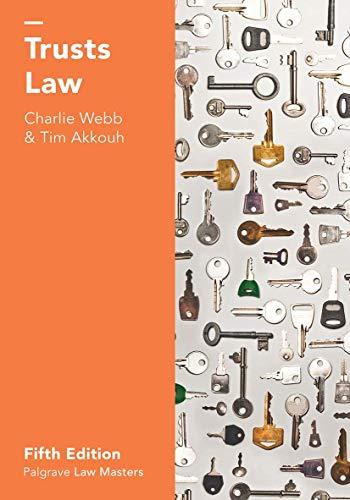Question
Aristotle famously characterized the nature of law when he observed that law is order, and good law is good order which he immediately followed with
Aristotle famously characterized the nature of law when he observed that "law is order, and good law is good order" which he immediately followed with the caveat "but a very great multitude cannot be orderly" (Aristotle, Politics, Book Seven). If only it were as simple as his first sentiment: "law is order, and good law is good order." If only it were possible to get the "very great multitude" to agree. As we've seen throughout this course, law is complex. Sometimes the complexity is in the rules themselves. Other times it is in their underlying policies, or the conflicting motivations of politicians involved in their creation. Then there is the very vexing problem that some issues simply do not lend themselves to easy solutions or agreement - sometimes the best solution law can realistically offer is what I often refer to as "the least bad option." There is no single way to tackle this. I am looking for a coherent, logical, well written analysis with a conclusion consistent with the analysis. You may select any topic you wish. You may get ideas from current events, something from class, something related to your profession, or perhaps simply a topic that interests you. Length: Double-spaced 7 - 9 pages (not counting title page and references).
Step by Step Solution
There are 3 Steps involved in it
Step: 1

Get Instant Access to Expert-Tailored Solutions
See step-by-step solutions with expert insights and AI powered tools for academic success
Step: 2

Step: 3

Ace Your Homework with AI
Get the answers you need in no time with our AI-driven, step-by-step assistance
Get Started


